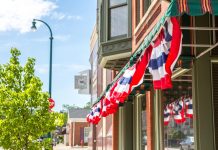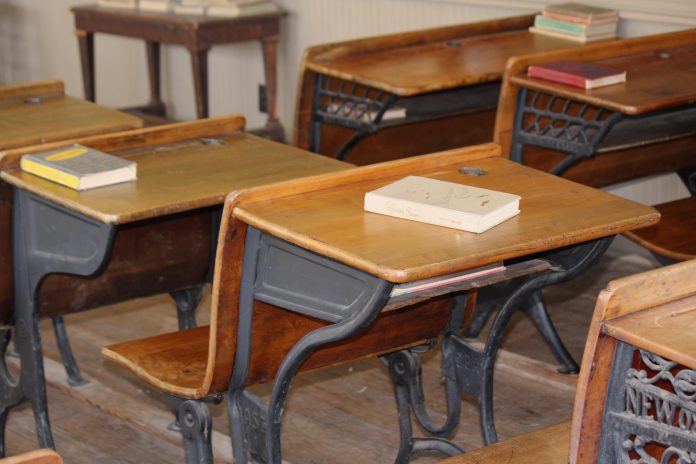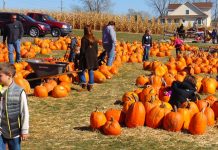By Chris Watson
At the risk of offending every educator in the region, we have to admit one thing: schools dominate our schedules. They dictate our driving habits, occupy at least one full night of our news (and several more if you consider college sports), create an entire month long retail sale, even dictate the prices we pay for many goods (during a recent trip to Florida author Chris Watson took advantage of Florida’s back to school no sales tax day).
And they should. Schools are right at the center of our community. They are a reminder to those of us living solo or in pairs that regardless of the status of children in our household, we need to be out and about with our education as well.
The litany terms about learning post formal education or trade skill training reads like a lesson in evolving marketing phraseology. Adult Education, non-traditional learning, adult growth, continuing education, and lifelong learning are just a few of the terms thrown around to supposedly “inspire” us to continue learning and growing past our classroom days. Plus there is something about the thought of learning something new that doesn’t have a direct fiscal or personal upside that turns many of us off.
The “BeLL” Curve
Here are the basic facts, however. According to the BeLL Project (Benefits of Lifelong Learning), a three year study concluding in 2014 with over 8000 participants, the benefits of engaging in what the study described as “organised, non formal, non vocational, voluntary adult education” are both significant and quantitative. The authors state in their opening summary:
“The data showed that adult learners experience numerous benefits from liberal adult education. They feel healthier and seem to lead healthier lifestyles; they build new social networks and experience improved well being. Moreover, adults who participate in liberal adult education appear to feel more motivated to engage in lifelong learning and view it as an opportunity to improve their lives. These benefits were reported by learners across all course areas, ranging from languages and the arts to sport and civic education.”
Well, who doesn’t want some of that?
How and How Much
The truth is that there are hundreds of ways to take ourselves back to school. Some cost a lot, some cost nothing. All take some research. It is unlikely while wandering around at the mega mart that an education opportunity will walk up to us and present itself. So how do I start a process of adult enrichment, continuing education, of lifelong whatever?
The better question than “how” is “what?” Inside of the BeLL study are some hidden and curious words like “sports” and “across all course areas”. This means that, as long as I don’t try and pass off a life long search for the perfect corndog as research, engaging in an organized learning activity qualifies.
So dream a little. Don’t worry about what you will be successful at, dream about what you want to try. Like the ballroom dancing show on TV? Go try it. Take a class. Think you can’t do art? Take a sketch or painting class anyway. Or a cooking class. Or a college class. There is no reason to not go back to school formally. If you are, in general, 60 plus you can go back to college pretty much for free.
And don’t discount things like personal training, movement training, or even joining an organized sport. If you use those opportunities to improve your skill set, rather than compete, you are well on your way to benefits enumerated earlier.
Below are listed just a few of the area’s resources for going back to school. Feel free to add more in our comments section. Above all, get out and start the process of lifelong learning. Whether you just got out of college or just retired from a job, learning is and should be a lifelong process. It doesn’t necessarily keep us young. But it does keep us compassionately human, which is much much more important.
Selected Resources for Lifelong Learning
These resources for learning, many from the standard places we identify with education are a mere starting point. They do not include the vast array of learning opportunities available through private and small retail stores and studios. Be creative. The area has lots of dance, yoga and fitness studies, exercise clubs, art studios, music groups. It takes a little research to get at some but hey, “research” is what learning is all about.
Lifelong Learning Center, Lourdes University
Owens Community College (both 60 Plus and community classes)
University of Toledo Program 60 (60 Plus)
University of Toledo CALL program
University of Findlay, Senior Forum (50 plus)
Metro Parks Toledo (A wide range of activities, educational programs, and skill improvement programs, many are free)
Toledo Museum of Art (A whole catalogue of art classes. Don’t think, just try….)
577 Foundation ( A hidden gem in Perrysburg)
Toastmasters International (Networking, public speaking, leadership development, plus great people)
YMCA (Too many classes, activities, and learning opportunities to begin to list)








I like this article Chris, being a life long learner who is willing to take the risk of failure….like learning to ride a bike as an adult, is a great way to stay vibrant, happy, informed and fulfilled in life! Nice, Mike